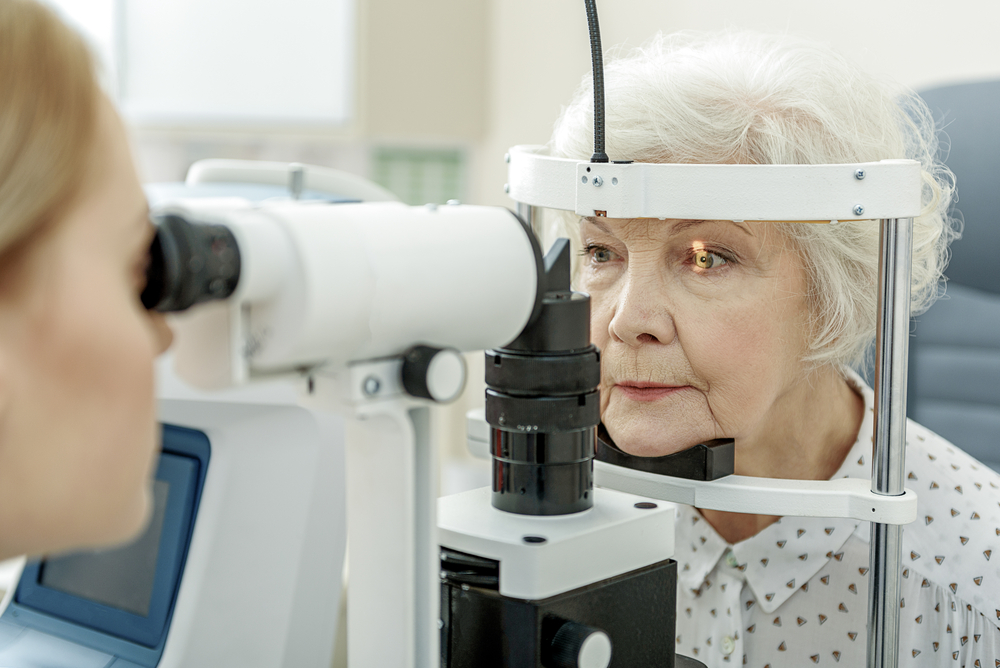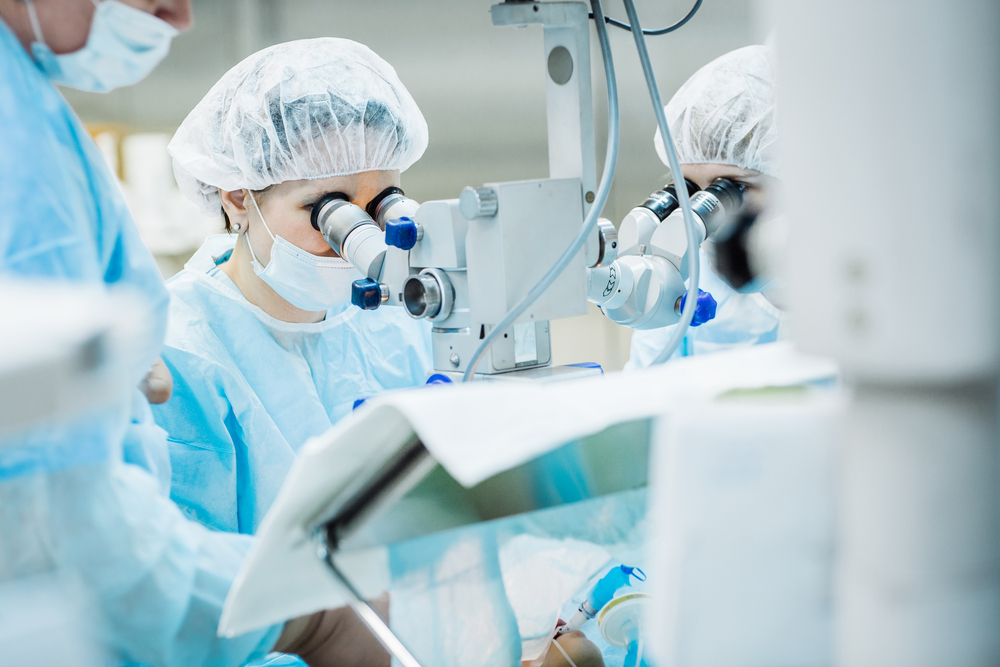Can You Treat Cataracts Without Surgery?
December 1, 2023
Cataracts are a common vision problem, especially in older adults. At advanced stages, the only treatment is cataract surgery to remove the clouded lens and replace it with an artificial intraocular lens.
But is there any way to treat cataracts without surgery? In the early stages, there are some lifestyle adjustments that may reduce their symptoms, but cataract surgery will be necessary eventually.
Keep reading to learn more about cataracts, including whether or not you can treat cataracts without surgery!
What Exactly are Cataracts?
The lens is a clear piece of dense tissue inside the eye behind the pupil. The natural lens is usually transparent and can adjust the focus of the light that passes through it.
This is because the proteins and fibers inside the lens are arranged carefully. As you get older, however, these proteins and fibers break down and begin to accumulate.
This mass of disorganized molecules is a cataract. When the cataract first forms, it is extremely small.
It blocks almost no light, and you likely won't notice any changes in your vision. However, the cataract will get bigger with time as more molecules break down and clump up.
At some point, the cataract will develop enough to block a significant amount of light, which will cause blurry vision among other symptoms.
What Are the Most Common Symptoms of Cataracts?
The most common symptoms of cataracts include:
- Cloudy, blurry vision.
- Faded colors.
- Poor night vision.
- Halos around lights.
- Double vision in one eye.
- Sensitivity to glare.
As the cataract worsens, strong prescription glasses may no longer improve vision.
Daily activities like reading, watching TV, driving, recognizing faces, and seeing street signs can become more difficult. Often, the symptoms are painless and develop gradually, so people may not notice vision changes at first.
In some cases, one eye may develop a cataract sooner than the other, leading to a difference in vision between the two eyes. Cataracts in both eyes can increase the risk of falls and accidents.
While symptoms may vary, virtually all cataracts cause a decrease in visual sharpness and clarity if they are not treated. Getting regular eye exams helps detect cataracts early so vision can be monitored.
Are you Experiencing Symptoms of Cataracts? Take the Self-Test to find out!
Take the Self-Test to find out!
What are the Different Kinds of Cataracts?
Not all cataracts are the same. You are more likely to experience specific symptoms depending on where inside the lens the cataract is growing.
The three most common types of cataracts are:
Nuclear Cataracts
Nuclear cataracts begin in the center of the lens. Nuclear cataracts strongly affect your distance vision.
In some cases, your near vision may be temporarily improved. This is called "second sight."
Eventually, the cataract darkens, and vision will decrease.
Cortical Cataracts
Cortical cataracts form around the edges of the lens. They have a distinct appearance.
Wedges form as the cataract grows and points into the center of the lens like spokes on a bike wheel.
Posterior Subcapsular Cataracts
Posterior subcapsular cataracts grow at the back of the lens, directly in the way of incoming light. This quickly affects close-up vision and will likely cause issues with glare and halos.
Do I Need Cataract Surgery Right Away?
You can live with cataracts for years without experiencing many symptoms. They often grow very slowly, giving your brain time to adjust.
Even after the effects of the cataracts begin to become noticeable, you can likely use glasses to improve your vision. However, your eye doctor will recommend cataract surgery once your quality of life is affected.
If you suspect that you are developing cataracts, it's important that you do not wait to schedule a cataract evaluation. During your screening, your eye doctor at Center for Total Eye Care will examine and test your eyes closely for signs of cataracts.
Your eye doctor will let you know whether or not it is time for cataract surgery. You can set up a cataract evaluation at Center for Total Eye Care in Westminster or Eldersburg, Maryland, today.
Do you want find out if it might be time for you to have cataract surgery?
Schedule a Cataract Evaluation
What is Cataract Surgery Like?
 Cataract surgery is a very common outpatient procedure with a high rate of success. During cataract surgery, the cloudy natural lens in the eye is removed and replaced with a clear artificial lens called an intraocular lens (IOL).
Cataract surgery is a very common outpatient procedure with a high rate of success. During cataract surgery, the cloudy natural lens in the eye is removed and replaced with a clear artificial lens called an intraocular lens (IOL).
During the procedure, your eye will be numb, so you will be comfortable but awake. First, tiny incisions are made in the eye to allow surgical instruments access to the lens.
Using an ultrasound probe, your cataract surgeon breaks up the cloudy lens into small pieces and suctions them out. The new artificial lens is then inserted through the tiny incision where it will permanently stay in position.
The incision is so small no stitches are required. Cataract surgery typically takes less than thirty minutes.
In most cases, you will have one eye done at a time. Although you can leave the same day, your vision may be blurry at first as the eye heals, so you will need someone else to drive you home.
Full recovery takes about four to six weeks as your eye heals and vision improves. You'll need to use medicated eye drops during recovery to prevent infection and reduce inflammation.
After healing, the IOL provides clear, sharp vision.
Are you experiencing symptoms of cataracts? Schedule a cataract evaluation at Center for Total Eye Care in Westminster or Eldersburg, MD, today!



